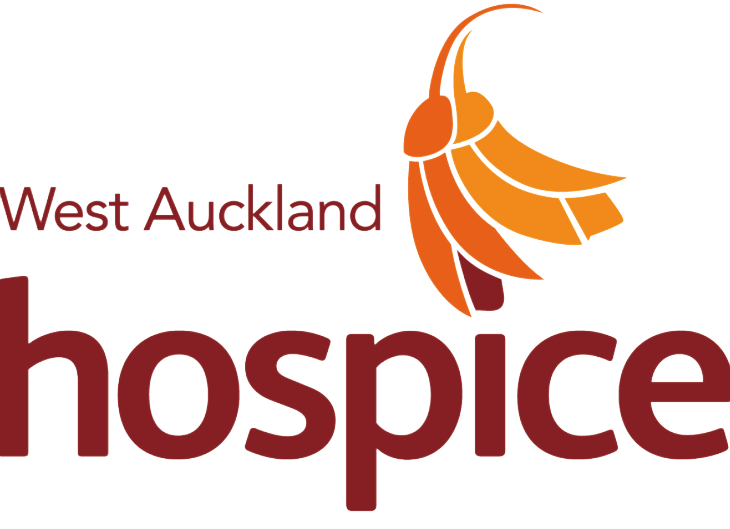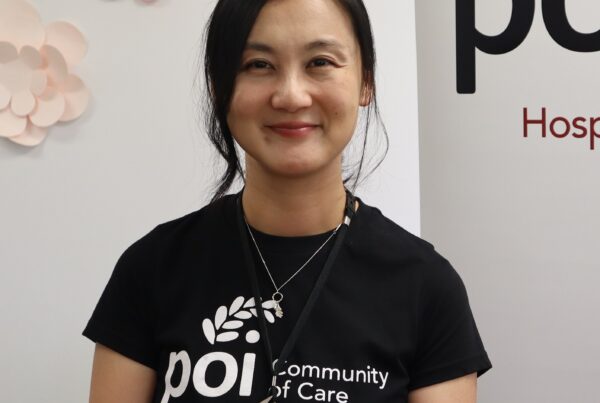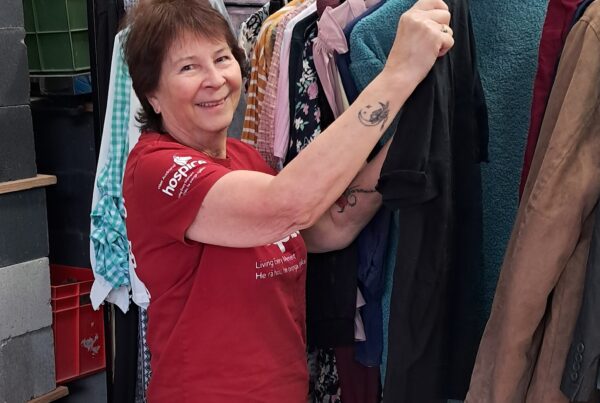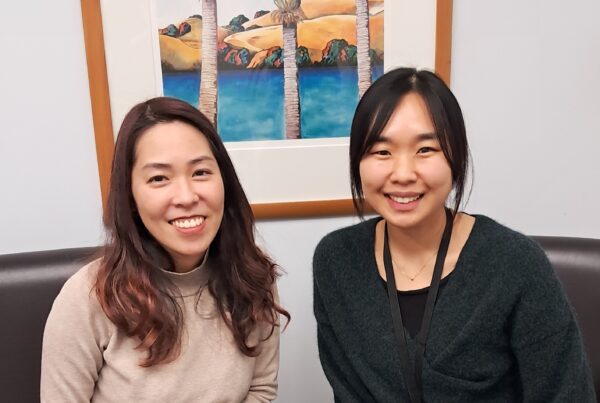Xu Ping is a third year Master of Creative Arts therapy student at Whitecliffe College and is currently spending one day each week here at Hospice West Auckland on a student placement. She has been shadowing Kathrin, our Arts Therapist, as well as other members of the Social Care team, to learn more about creative arts therapy in the palliative care field.
Although she grew up around art, Xu Ping didn’t realise that it could have a different application than creating a finished product. “Arts therapy is a type of Pyschotherapy, combining talk therapy with creative expression. We use art to explore one’s world in all its facets,” she explains, “so it’s been quite eye-opening for me to see the possibilities opened up by, and how you can gain self-awareness and improve wellbeing through art.”
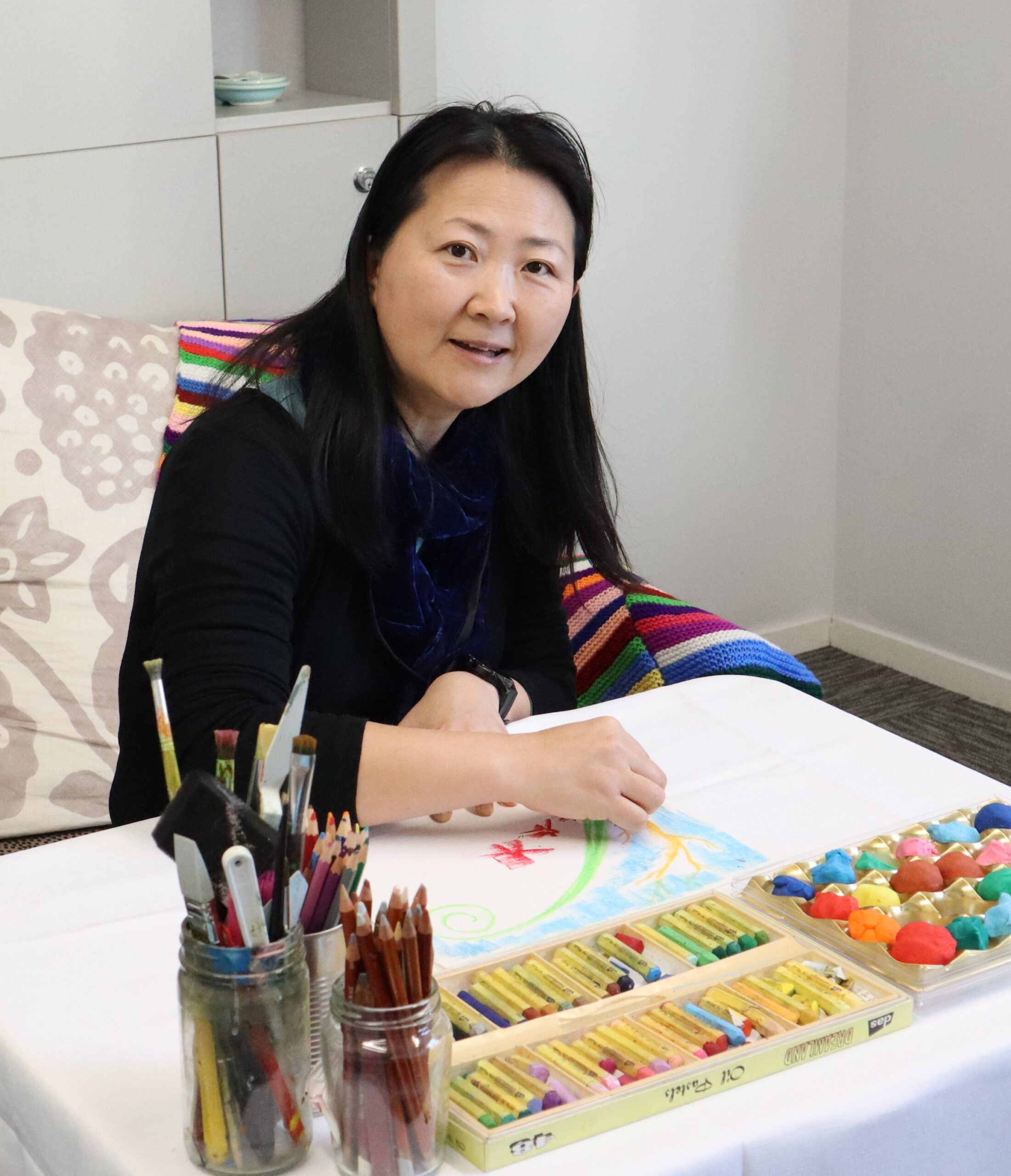
Through creative arts therapy work, we can often find creative ways to work with and express issues/things that are deeply impacting us that we might not want to, or feel ready to, talk about. It can encompass many different modalities, including visual arts, movement, sound and rhythm. As well as palliative care, creative arts therapy can be applied in a number of different areas such as mental health, education, and community environments working with immigrants and refugees. A typical arts therapy session involves exploring and expressing by using creative media, but it is always person-centred and therefore guided by what the person needs at that particular time.
Xu Ping’s interest in palliative care has been inspired by her own personal experiences, and she is particularly interested in the intersection of spirituality and our relationship with end of life. “Coming from a Chinese culture, End of life is a topic we try to avoid, but I am interested in exploring our relationship with it and how my study could be applied to that,” she says. She is also keen to raise awareness for Hospice among the West Auckland Asian community. “I think there is a lack of understanding about what Hospice offers to the Asian community. Although there is a growing appreciation for giving that end-of-life phase more quality, it’s still quite a different concept for our culture. The question is how can we best deliver the message in a gentle, slow but resonating way to the Asian community – and, in fact, to everyone in our multi-cultural community?”
Xu Ping admits she didn’t have a great understanding about what Hospice does prior to her study placement. “I’m slowly learning the bigger picture about what Hospice offers,” she says. “It has been fantastic to see how the organisation works because it’s such a unique system with a multi-disciplined team. I also love how multi-cultural it is! It’s beautiful to learn how holistic Hospice is, not just caring for patients but also whānau and caregivers. I’ve been surprised by the wide range of support there is.”
Xu Ping is excited to be collaborating with Zain, Hospice’s Spiritual Advisor, on a new workshop called ‘Discover Your Spirit’. Designed for patients, whānau and carers, the workshop is structured as a three-week programme that looks at participants’ ancestry and heritage, and what has led them to the path they are on now. Sessions will combine Zain’s spirituality and meditative expertise with Xu Ping’s creative arts ability to facilitate the discovery journey.
As a learning-focused organisation, Hospice West Auckland welcomes the opportunity to work with students in all areas of palliative care. “The team is fantastic and I’m really grateful to Kathrin and the Hospice team for letting me shadow and learn from them,” she says. “End of life can be a difficult journey to go through with someone but I see them approach people in such a gentle, understanding way. I’m excited to learn more about palliative care and how my learnings can help my culture and community.”
